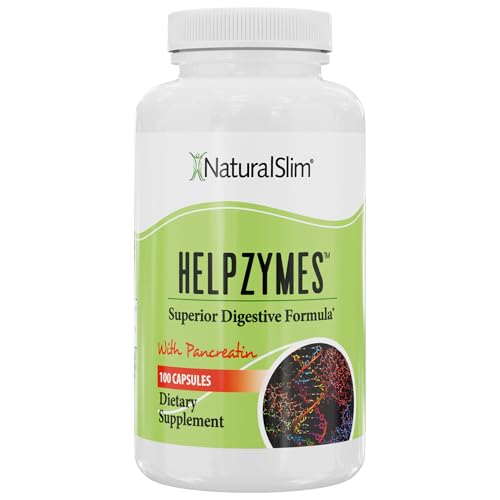
In today’s health-conscious world, natural health products are gaining popularity like never before. But what exactly qualifies as a natural health product? I’ve often found that the definition can be a bit murky, leading to confusion among consumers seeking alternatives to conventional medicine.
Natural health products encompass a wide range of items, from herbal supplements and vitamins to homeopathic remedies and essential oils. They promise to support wellness and enhance overall health, but it’s crucial to understand what truly falls under this umbrella. Join me as we explore the characteristics that define natural health products and how they can play a role in our daily lives.
Definition of Natural Health Products
Natural health products refer to substances derived from natural sources that promote health and wellness. These products typically include herbal supplements, vitamins, minerals, homeopathic remedies, and essential oils.
Natural health products often possess several defining characteristics:
- Natural Ingredients: Formulations must contain constituents sourced from plants, minerals, or other naturally occurring sources.
- Health Claims: Items are often marketed with statements supporting their role in enhancing health or preventing illness.
- Regulatory Status: In the United States, the Food and Drug Administration (FDA) regulates these products as dietary supplements, not as conventional drugs.
- Traditional Use: Many of these products draw from traditional practices, incorporating centuries of cultural knowledge about health.
Natural health products attract individuals looking for alternative or complementary options to conventional medicine. They offer a variety of forms, including capsules, powders, tinctures, and oils, catering to diverse preferences and needs.
Types of Natural Health Products
Natural health products encompass a range of items designed to support wellness and health. These products are derived from natural sources and include herbal supplements, essential oils, and homeopathic remedies.
Herbal Supplements
Herbal supplements consist of plant-derived substances used for various health benefits. These include extracts from leaves, flowers, roots, and seeds of plants. Common types include echinacea for immune support, ginseng for energy, and valerian root for relaxation. Manufacturers often market these supplements for their potential to assist with specific health concerns, like digestive issues or stress relief.
Essential Oils
Essential oils are concentrated extracts obtained from plants that offer therapeutic benefits. These oils, such as lavender for calming effects and tea tree for antimicrobial properties, often undergo steam distillation or cold pressing. Users typically apply essential oils through diffusion, topical application, or aromatherapy. It’s important to use these oils with care, as some require dilution before use.
Homeopathic Remedies
Homeopathic remedies involve highly diluted substances intended to stimulate the body’s natural healing processes. These remedies often originate from plants, minerals, or animal products and are based on the principle of “like cures like.” Common examples include arnica for bruising and oscillococcinum for flu-like symptoms. Homeopathy focuses on individualized treatment, considering each person’s unique symptoms and constitution.
Regulatory Framework
Natural health products face specific regulations aimed at ensuring consumer safety and informed choices. These regulations vary by country, but they often include government oversight and standards for safety and efficacy.
Government Oversight
In the United States, the Food and Drug Administration (FDA) oversees natural health products classified as dietary supplements. These products do not require pre-market approval like pharmaceuticals. Manufacturers must adhere to Good Manufacturing Practices (GMP) to ensure quality and safety. In Canada, Health Canada regulates natural health products under the Natural Health Products Regulations, requiring products to obtain a product license before marketing. Compliance with specific labeling and safety standards protects consumers and promotes informed decisions.
Safety and Efficacy
Safety and efficacy standards for natural health products remain crucial to consumer trust. Manufacturers must ensure their products are safe for consumption and label them with accurate information. Clinical studies, although not always mandatory, bolster claims regarding the effectiveness of herbal supplements and homeopathic remedies. Common adverse effects, interactions with medications, and contraindications are essential components of product information, allowing consumers to make informed choices about their health care options.
Popular Natural Health Products
Natural health products encompass a wide range of items that promote wellness. Here are some of the most popular categories:
- Herbal Supplements
Herbal supplements include plant-derived substances with various health benefits. Examples include:
- Echinacea: Often used for immune support, particularly during cold and flu season.
- Ginseng: Known for enhancing energy and reducing fatigue.
- Essential Oils
Essential oils are concentrated extracts offering therapeutic properties. Common uses involve:
- Lavender: Frequently used for its calming effects and stress relief.
- Tea Tree Oil: Recognized for its antimicrobial properties, often applied for skin issues.
- Homeopathic Remedies
Homeopathic remedies are made from highly diluted substances aimed at stimulating natural healing. Examples include:
- Arnica: Used for bruising and muscle soreness.
- Oscillococcinum: Commonly taken to alleviate flu-like symptoms.
- Vitamins and Minerals
Vitamins and minerals play vital roles in maintaining health. Key examples involve:
- Vitamin D: Supports bone health and immune function.
- Magnesium: Important for muscle and nerve function, as well as energy production.
- Probiotics
Probiotics consist of beneficial bacteria that support gut health. They are commonly found in:
- Yogurt: Contains live cultures promoting digestive health.
- Supplements: Available in capsule or powder forms, targeting various health concerns.
These natural health products reflect a growing interest in wellness and offer consumers alternatives to conventional medicines while emphasizing natural ingredients and holistic approaches.
Conclusion
Natural health products offer a unique approach to wellness that resonates with many of us seeking alternatives to conventional medicine. With their roots in nature and a focus on holistic health, these products can play a valuable role in our daily lives.
As I explore the various types of natural health products available, I’m reminded of the importance of making informed choices. Understanding the regulatory landscape and the significance of quality standards helps ensure that I’m using safe and effective products.
Embracing natural health options allows me to tailor my wellness journey to my individual needs, promoting a healthier lifestyle grounded in nature.





